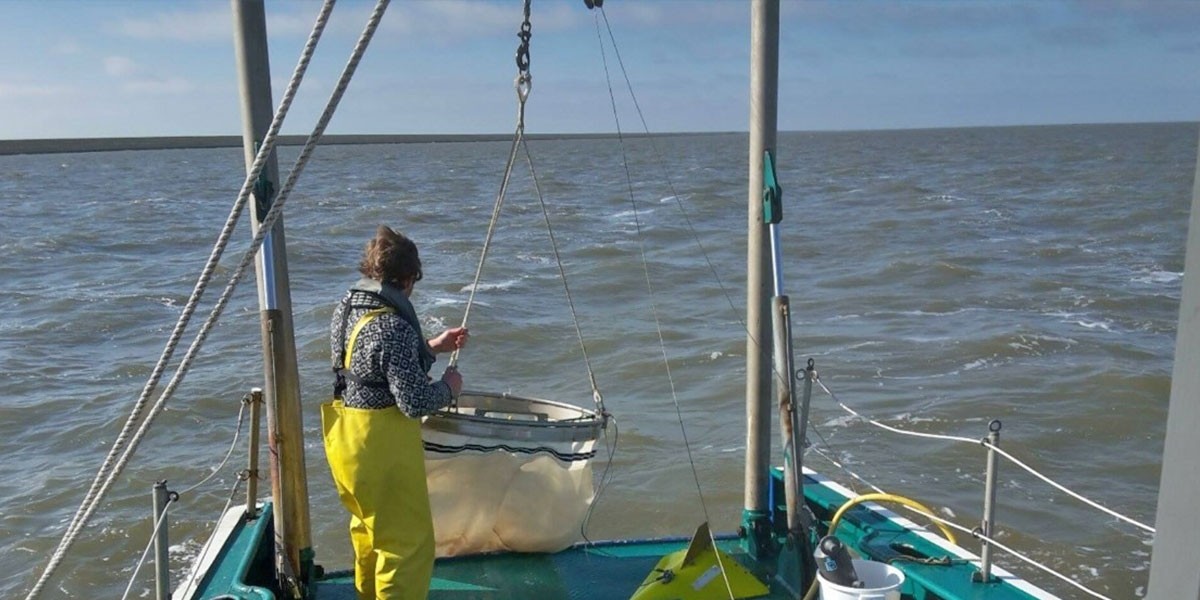Inactive user
The page you are trying to access has been deactivated because Lodewijk van Walraven is not working for NIOZ anymore.
Go to Staff.

Research interests
I am a marine ecologist passionate about sustainability, biodiversity, taxonomy and how human-induced changes are affecting marine ecosystems. For my PhD in marine ecology I investigated changes in gelatinous zooplankton (jellyfish) communities in Dutch coastal waters by analysing long-term datasets and performing field surveys as well as experiments.
I currently work at Royal NIOZ where I investigate the environmental impact of Blue Energy.
Experienced in organising research projects, research cruises and monitoring surveys, analysing long-term data, experiments, and species identification/taxonomy of benthos as well as zooplankton and fish.
Visit my website here
Functions
2016– present: Marine ecology researcher (post-doc), Royal Netherlands Institute for Sea Research (NIOZ), Texel Investigating the environmental effects of Reverse Electrodialysis power generation (Blue Energy) on the environment and impact of clogging, fouling etc by organisms in the REDstack experimental power plant in the Netherlands.
2015– 2017: Researcher Fisheries, Good Fish Foundation, Veenendaal Development, maintenance and improvement of the VISwijzer website en iOS en Android apps. Performing sustainability assessments for fisheries and aquaculture products for Good Fish Foundation and different clients.
2009–2010: Research assistant, Royal NIOZ, Texel Performing field- and lab work; sampling and identification of zooplankton and benthos in the Wadden Sea. Projects: SIBES (NIOZ/NAM) and PRODUS (Rijkswaterstaat) 2009: MSc research internship, Royal NIOZ, Texel Investigating the species composition and seasonal patterns of gelatinous zooplankton in the Wadden Sea by means of a weekly sampling programme. I also participated in 6 week-long sampling cruises for the NIOZ NWO-ZKO project Structure and trophic functioning of Wadden Sea fish fauna.
Supervisor: Dr. Ir. Henk van der Veer.
2008: Research assistant, University of British Columbia, Olhão, Portugal Assisting Project Seahorse researchers with SCUBA diving fieldwork investigating distribution and ecology of seahorses. Underwater transects, measuring and tagging seahorses in the Ria Formosa nature reserve in southern Portugal. Supervisor: Dr. Iain Caldwell.
Key-publications
Please find my complete list of NIOZ-publications at the bottom of this webpage. You can download all my publications on ResearchGate.
Professional education
2010–2014: PhD, Royal NIOZ, Texel During my PhD I studied the occurrence, species composition, seasonal patterns and long-term changes in populations of gelatinous zooplankton in Dutch coastal waters. Focused on changes following the introduction of the invasive ctenophore Mnemiopsis leidyi. First I qualified and quantified the role gelatinous zooplankton plays in the ecosystems of Dutch coastal waters, primarily the Wadden Sea. The invasive ctenophore Mnemiopsis leidyi was found to be the most abundant species present in the area. Using field sampling, experiments and Dynamic Energy Budget modelling I investigated what makes this species such a successful invader.
Promotor: Prof. Dr. Theunis Piersma, University of Groningen. Co-promotores:
Dr. Ir. Henk van der Veer, NIOZ en Dr. Victor Langenberg, Deltares.
2007–2008: MSc research internship, Wageningen IMARES, IJmuiden Performing a study on fisheries induced evolution in North Sea plaice, more specifically on sexual dimorphism in reproduction and growth. For this project I sampled discards and bycatch of North Sea beam trawlers and joined several ICES IBTS and BTS surveys on the North Sea. I presented the results at the International Flatfish Symposium in Sesimbra, Portugal in 2008. The study is published in Journal of Sea Research.
Supervisor: Prof. Dr. Adriaan Rijnsdorp.
Awards and Prizes
PhD thesis
The study
Whether jellyfish numbers are increasing worldwide is an ongoing debate, but it is a fact that jellyfish-related problems such as clogged fishing gear and cooling water intakes, and tourists avoiding beaches, are increasing. In Dutch coastal waters the introduction of the invasive comb jellyfish Mnemiopsis leidyi triggered a renewed interest in this diverse group of animals. In 2010 I started a study on gelatinous zooplankton in Dutch coastal waters, in a collaboration between the NIOZ Royal Netherlands Institute for Sea Research and Deltares. On November 18, 2016 I defended my thesis at the University of Groningen.
Results
Fifty years of jellyfish catches in a fish fyke on Texel show that jellyfish are appearing earlier in the year following warmer winters. The number of jellyfish caught had decreased. Polyps (bottom-living stages of jellyfish) were also studied and searched for on the bottom, on wrecks and in harbours and ports. Only polyps of the moon jellyfish were found. Knowledge of the distribution of polyps can lead to better forecasting of jellyfish problems in the future.
The American comb jellyfish is now the most common gelatinous species in Dutch waters. Experiments showed that the species can survive in very brackish waters. Computer models of distribution, survival, reproduction and growth of the species predict that Dutch waters act as a source of comb jellies for other European waters. When coastal waters get warmer, spawning of the invasive species could increase and shift to earlier months. This can have consequences for food availability of other gelatinous species and fish such as anchovy, sprat and herring.
A pdf of the thesis can be downloaded here